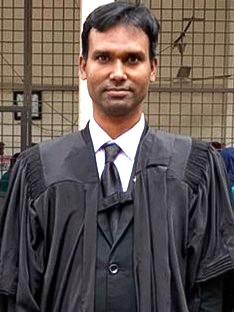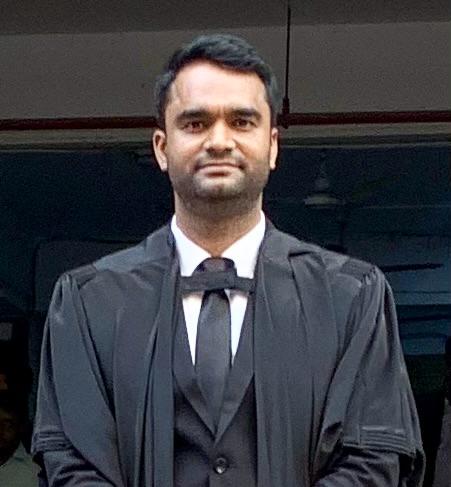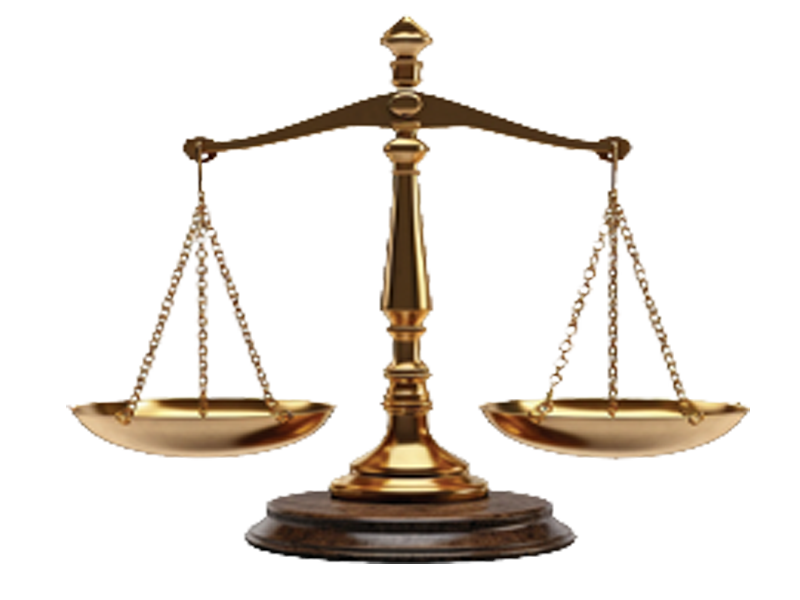Laws & Lawyers
Discover our top-notch of Legal Subject Matter Support.
Get up and understand your Rights.
Discover our top-notch of Legal Subject Matter Support.
Get up and understand your Rights.
Explore our wide range services.

Legal Support in Civil issues/Civil Appeal that is meant Marriage, Divorce, Sucsession, Will, Probate, Land related suit, CS, SA, RS, BS, City Jorip, Land Vetting, Legal Drafting, and Right to office, etc.
সিভিল ইস্যু/সিভিল আপীল মানে বিবাহ, তালাক, উত্তারাধিকার, হেবা বা দান, জমিজমা নিয়ে মোক্কদ্দমা, এবং পদের অধিকার ইত্যাদি বিষয়ে আইনি সহায়তা।

Legal support in Criminal Cases/Criminal Appeal that is meant Offence against Human Body or Property like Murder, Stolen and Criminal Conspirecy, etc.
ক্রিমিনাল ইস্যু/ক্রিমিনাল আপীল মানে মানুষের দেহ ও সম্পত্তি নিয়ে যে অপরাধ সংঘটিত হয় যেমন খুন বা চুরি বা অপরাধমূলক ষড়যন্ত্র ইত্যাদি বিষয়ে আইনি সহায়তা।

Legal Support in Special Laws/IP Law like Offence to Nari o Shishu, Drug Cases, and Smuggling, etc.
বিশেষ আইনে মামলা মানে নারী ও শিশু বিষয়ক অপরাধ, মাদক বিষয়ক অপরাধ, চোরাচালান বিষয়ক অপরাধ, অন্যান্য বিশেষ আইনে সংঘটিত অপরাধ বিষয়ে আইনি সহায়তা ।

Legal Support to WRIT.
পাঁচ প্রকার রিট বিষয়ে আইনি সহায়তা ।

Legal Support in Business or Finance law and Company Law like TAX & VAT issue, Company Formation,Cheque Diswoner, Bankruptcy, and Money Related issues, etc.
ভ্যাট, ট্যাক্স ,কাস্টম, চেক নিয়ে মামলা মানে টাকার লেনদেন, চেক লেনদেন ,অর্থ বিষয়ক অপরাধ, ইত্যাদি বিষয়ে আইনি সহায়তা ।

Legal Support in any Court or Traibunal in Bangladesh for any Suits or Cases
বাংলাদেশের যে কোন আদালতে বা বিচারাধীন যে কোন মামলার ক্ষেত্রে আইনগত সহায়তা।
Take a look at some of our videos.
See Youtube Class
See Youtube Class
See Youtube Class
See Youtube Class
See Youtube Class
See Youtube Class
See Youtube Class
See Pdf
See Youtube Class
Let's watch
See you live class
See you live class
See you live class
See you live class
See live class
See you live class
See you live class
See you live class
See you live class
This is the folk of Legal Experts. They are keen to render Legal Supports and legal Remedies in the Upper and Lower Courts of Bangladesh.

LLB(Hon's) & LLM (RU)
Civil & Criminal Expert

Lower Court Trail Expert

Bar-at-Law, London
Business & Corporate Expert

LLB(Hon's), LLM(DIU)
Team Member

LLB(Hon's), LLM(DIU) & MBA(USA)
Team Coordinator

LLB(Hon's) & LLM(Running)
Team Member
 Criminal Appeal 2014
Criminal Appeal 2014
In cross examination- Declined: PW.2- MD. Harun or Rashid Khan deposed that on 22.10.2003 Investigating Officer Abu Bakar Siddique went to Agrani Bank, Green Road Branch and seized some papers and documents. The investigation officer prepared seizure list in his presence which was marked as Exhibit-1 and his signature as Exhibit-1/2. In Cross Examination, he replied that he had no knowledge about the seized documents in the seizure list. P.
Take a look at fames



Legal Concepts:
Legal concepts are fundamental building blocks in the field of law. They serve as the foundation for legal doctrine and are essential for shaping legal rules and standards. Let’s delve into what legal concepts are and their significance:
Definition and Role:
Legal concepts encompass terms and ideas that underpin legal norms. These concepts are used to formulate rules, standards, and principles within the legal system.
They play a crucial role in legal reasoning, interpretation, and decision-making. Legal professionals rely on these concepts to navigate complex legal issues.
Types of Legal Concepts:
L-concepts (Integral Concepts): These are concepts that are an inherent part of the law itself. They directly contribute to the content of legal norms. Examples include terms like “right,” “duty,” “power,” “privilege,” “liability,” and “immunity.”
J-concepts (Professional Vocabulary): These concepts belong to the specialized vocabulary used by lawyers and jurists. They facilitate legal analysis, argumentation, and communication

Fundamental Rights:
Fundamental rights are basic human rights enshrined in the Constitution of India, guaranteed to all citizens. These rights are applied without discrimination based on factors such as race, religion, or gender. Significantly, fundamental rights are enforceable by the courts, subject to certain conditions12.
Here are the six fundamental rights recognized in the Indian Constitution:
Right to Equality (Articles 14-18):
Article 14: Ensures equality before the law.
Article 15: Prohibits discrimination based on religion, race, caste, sex, or place of birth.
Article 16: Guarantees equality of opportunity in matters of public employment.
Right to Freedom (Articles 19-22):
Article 19: Protects freedom of speech and expression, assembly, association, movement, and residence.
Article 20: Safeguards against self-incrimination and double jeopardy.
Article 21: Ensures right to life and personal liberty.
Right against Exploitation (Articles 23-24):
Article 23: Prohibits human trafficking, forced labor, and child labor.
Article 24: Forbids employment of children in hazardous industries.
Right to Freedom of Religion (Articles 25-28):
Article 25: Grants freedom of conscience and the right to profess, practice, and propagate religion.
Article 26: Allows religious denominations to manage their own affairs.
Article 27: Prohibits state funding of religious institutions.
Article 28: Prevents religious instruction in state-funded educational institutions.
Known our Theme in providing Legal services.
আমাদের একটা স্বপ্ন আছে ! আইন পেশা একটি গতিশীল ও রাজকীয় পেশা, যেখানে আইনী পেশাদাররা ন্যায়বিচার নিশ্চিত করে এবং সামাজিক শৃঙ্খলা বজায় রেখে আইন অধ্যয়ন, বিকাশ এবং প্রয়োগ করেন। বাংলাদেশের আইন ও বিচার বাবস্থা ও আইনের অধিকার সাধারণ মানুষের কাছে পৌছান যাহা অনুচ্ছেদ (৩১) অনুসারে: আইনের আশ্রয়লাভ এবং আইনানুযায়ী ও কেবল আইনানুযায়ী ব্যবহারলাভ যে কোন স্থানে অবস্থানরত প্রত্যেক নাগরিকের এবং সাময়িকভাবে বাংলাদেশে অবস্থানরত অপরাপর ব্যক্তির অবিচ্ছেদ্য অধিকার এবং বিশেষতঃ আইনানুযায়ী ব্যতীত এমন কোন ব্যবস্থা গ্রহণ করা যাইবে না, যাহাতে কোন ব্যক্তির জীবন, স্বাধীনতা, দেহ, সুনাম বা সম্পত্তির হানি ঘটে।
আইন আদালত জানবো
আইন মেনে জীবন গড়ব।
আইনের বিষয়ে আর নয় ভয়
আইন জেনে নিজের অধিকার করবো আদায়।